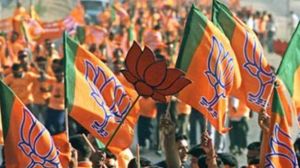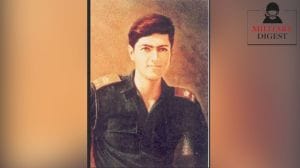India8217;s grass training raises doubts
SYDNEY, SEPTEMBER 12: The 12-0 and 10-0 victories against local club teams reminded India of their glory-filled past. It also was a glimps...

SYDNEY, SEPTEMBER 12: The 12-0 and 10-0 victories against local club teams reminded India of their glory-filled past. It also was a glimpse of field hockey8217;s history 8211; on grass. For two weeks, India has enjoyed training on grass and confidence-boosting play in the town of Murwillambah in preparation for its Olympic opener against Argentina on Sunday.
Too bad that since the mid 1970s, field hockey8217;s major tournaments have been played on artificial turf. And when India was forced back on to the plastic on Monday, it struggled against Sydney University before finally winning 3-2.
The idea to train at Murwillambah, a New South Wales town with a substantial Indian, mostly Sikh community, apparently was to give the Indian side a sense of home. The town has a Sikh temple and recognisable food is abundant.But considering that there are only 10 artificial turf pitches in India, and their dearth has been blamed by some for the country8217;s fall from the top of field hockey8217;s elite, the decision to train in Murwillambah is now being questioned.
Monday8217;s game against Sydney also exposed India8217;s midfield weakness, with strikers Baljit Singh Dhillon and Dhanraj Pillay constantly retreating to get the ball and build attacks. India scored two second-half goals to eventually prevail. 8220;I was happy with the effort,8221; said coach Vasudevan Baskaran, who captained India8217;s last Olympic gold-medal winning side in 1980. 8220;The boys cannot go all out for such a game.8221; 8220;But the Sydney University boys were good and made us work extra. It8217;s always the fear of an injury that scares the players into stretching too much when going into a tackle.8221;
Pillay said he was happy with the team8217;s efforts and called the match 8220;good. I ran hard and the match helped in tuning up for the game. I think the team had a good session,8221; he said.
Critics already are saying Sydney University gave the Indians a needed jolt. 8220;Indian hockey has been at the crossroads 8230; because we have never bothered to learn from our mistakes,8221; Baskaran said. 8220;Another poor show could prove disastrous for Indian hockey8217;s future.8221; India have seen their prominence in hockey decline sharply over the last 20 years and especially since it won 30 straight matches from 1928 to 1960, claiming five gold medals and a silver.
Some mark India8217;s decline with the 1-0 loss to Pakistan in the 1960 Olympic final. It won another gold in 1964 and again in 1980, when India dominated a boycott-decimated field.
- 01
- 02
- 03
- 04
- 05































